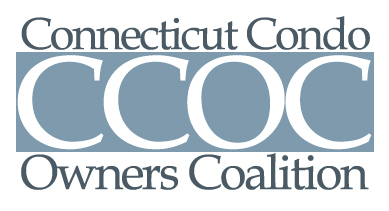Many Foreclosures By Associations May Be Done Illegally
Unit owners may feel powerless when the Condominium Association forecloses on units. Associations may be complacent about their foreclosures. Lenders may be paying Associations a higher priority than necessary. Why? Statutory condominium foreclosure requirements that became effective on October 1, 2013 have been consistently ignored.
The condominium Association has a lien on units for fees and fines imposed against a unit owner. The Association can foreclose on this lien and collect its reasonable attorneys’ fees and collection costs, charges, late charges, fines and interest. This lien is prior to the first and second mortgage holders in an amount equal to nine months of regularly assessed common charges. The lien does not have to be recorded; it automatically arises when the unit owner owes any money to the condominium.
Courts have determined that the financial operations of the condominium Association are so important, that the unit owner has almost no equitable defense against the foreclosure, except payment. Even if the Association has not maintained the condominium property or paid its bills, the Association will still be able to foreclose its lien. Unit owners who withhold common charge payments in protest can still have their units foreclosed.
By amending Section 47-258 of the Connecticut General Statutes, the Legislature has imposed conditions that the Association must fulfill before it begins a foreclosure against a unit. In 2013, the Legislature imposed additional notice requirements upon the Association. The notice requirements became effective on October 1, 2013 and apply to all foreclosure actions brought by the Association after that date.
Section 47-258(m) (1) states that the Association cannot commence a foreclosure action unless:
(1) the unit owner, at the time the action is commenced, owes a sum equal to at least two months of common expense assessments based on the last adopted budget;
(2) the Association has made a demand for payment in writing and has simultaneously provided a copy of the written notice to the holders of first and second mortgages on the unit; and
(3) the executive board has either voted to commence a foreclosure action specifically against the unit or has adopted a standard policy that provides for foreclosure against that unit.
If the Association does not allege in its foreclosure complaint that it complied with these requirements, the unit owner, and perhaps even the lenders and other lien holders, may move the court to strike the foreclosure action against the unit. If the Association has not followed these requirements, then the unit owner can successfully defeat the foreclosure. This interpretation was made by the Litchfield Superior Court in Hemlock Hill Camp Resort Coop Ass’n, Inc. v. Hughes.
A quick review of the pending condominium foreclosure complaints filed after October 1, 2013, indicates that almost all of the complaints do not contain allegations that the Association has complied with Section 47-258(m)(1). Discussions with boards and managers reveal that few are even aware of the requirements. Depending on the status of the cases, unit owners could bring motions to strike the foreclosure complaints or successfully move for summary judgment to have the foreclosure actions defeated.
In the vast majority of condominium foreclosure actions, the first or second mortgage holder will pay the amount of the nine month priority and the attorneys fees and costs either during or at the completion of the foreclosure action. Section 47-258 (m)(2) states that if the Association fails to provide a copy of the written notice sent to the unit owner or fails to send a notice to the first and second mortgage holders 60 days prior to commencing the foreclosure, the mortgage holders to not have to pay the Association’s costs or attorney’s fees. The notice to the lender must contain:
(1) the amount of unpaid common expense assessments owed to the Association as of the date of the notice;
(2) the amount of any attorneys’s fees and cost incurred by the Association in the enforcement of its lien as of the date of the notice;
(3) a statement of the Association’s intention to foreclose its lien, if it is not paid the assessments and the attorney’s fees and costs stated in the notice;
(4) the Association’s contact information, including the name of the person acting on behalf of the Association and the Associations manager, telephone number and electronic mail address, if any; and
(5) instructions concerning the acceptable means of making payment.
The notice to the lenders must be delivered by mail using the last name and address recorded on the land records. An examination of the land records of the town in which the unit is located is necessary to obtain this information. If, however, the holder of the security interest is a plaintiff in an action pending in the Superior Court to enforce the security interest, the written notice must go to the attorney appearing on behalf of the holder of the security interest in that action. The holder of the security interest may no longer be the lender listed on the land records, because the loan may have been sold. To ensure that the notice goes to the proper addressee, the court records must be searched to determine if any vendor has brought an action to enforce the mortgage against the unit.
Failure to provide the notice to the unit owner simultaneously to the mortgage holder will deprive the Association of its right to maintain its own foreclosure against a unit owner. Failure to provide the 60 day notice deprives the Association of the right to collect the attorneys fees and costs from the lender after the Association begins a foreclosure.
Unit owners who are being foreclosed in actions brought after October 1, 2013 can hire an attorney to determine if the foreclosure requirements were met. Associations should make sure that there collection policies and foreclosure procedures comply with the requirements and question their foreclosure attorneys about the statuses of the Association’s foreclosures brought after October 1, 2013. Lender counsel may be able to avoid paying attorney’s fees and cost that are normally part of the priority.
Pat Ayars is a Glastonbury attorney who specializes in condo issues. She is a member of the Connecticut Condo Association Advisory Committee.






I am also a condo member in Florida. Do you have a link to interesting articles of similar information for Florida. I am in the community of Palm Beach Leisureville.
Thank you